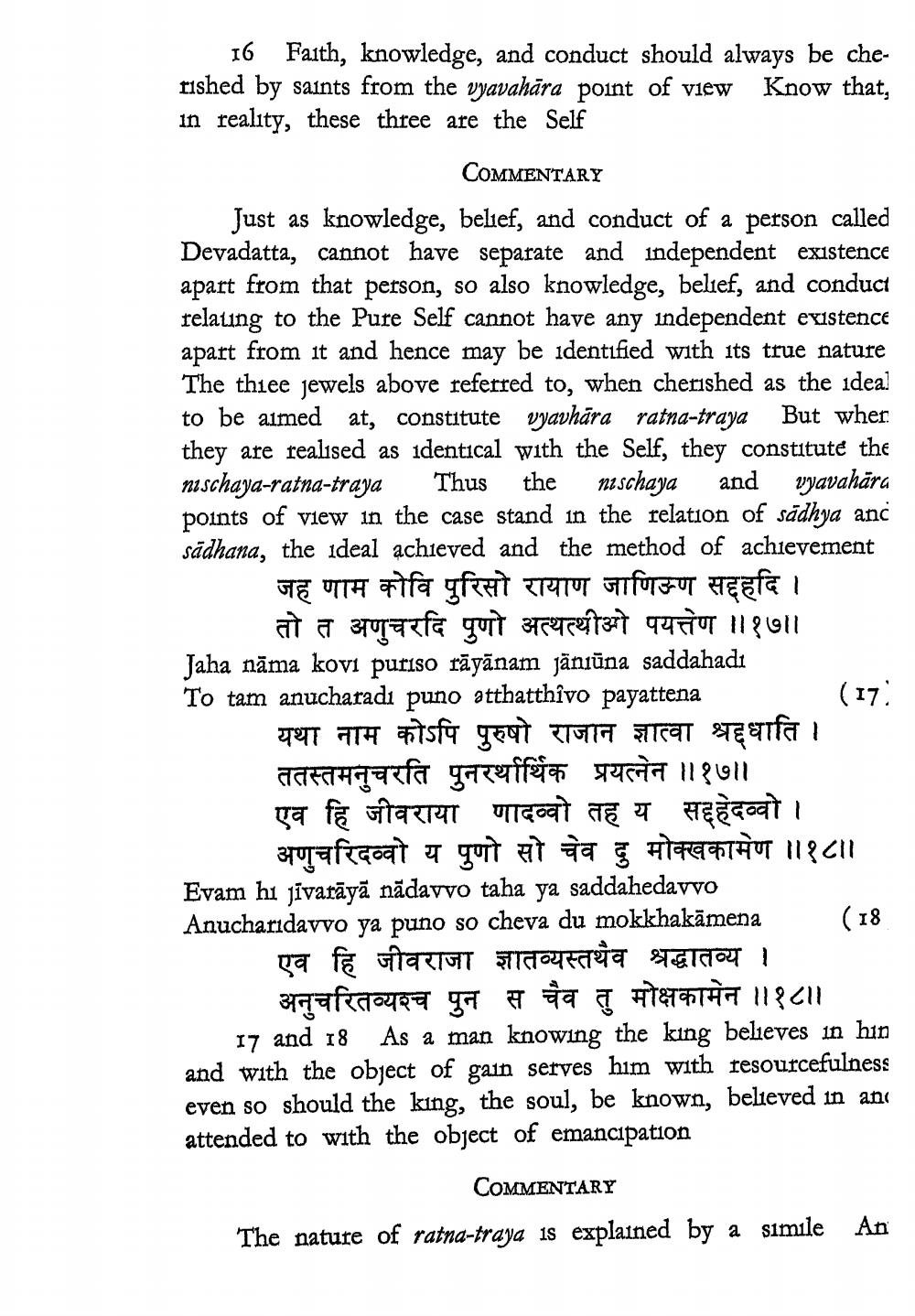________________
16 Faith, knowledge, and conduct should always be cherished by saints from the vyavahāra point of view Know that, in reality, these three are the Self
COMMENTARY Just as knowledge, belief, and conduct of a person called Devadatta, cannot have separate and independent existence apart from that person, so also knowledge, belief, and conduct relaung to the Pure Self cannot have any independent existence apart from it and hence may be identified with its true nature The thiee jewels above referred to, when cherished as the ideal to be aimed at, constitute vyavhāra ratna-traya But wher they are realised as identical with the Self, they constitute the nischaya-ratna-traya Thus the nischaya and vyavahāra points of view in the case stand in the relation of sadhya and sādhana, the ideal achieved and the method of achievement
जह णाम कोवि पुरिसो रायाण जाणिऊण सद्दहदि ।
तो त अणुचरदि पुणो अत्थत्थीओ पयत्तेण ॥१७॥ Jaha nāma kovi puriso rāyānam jäniūna saddahadı To tam anucharadi puno atthatthîvo payattena
(17 यथा नाम कोऽपि पुरुषो राजान ज्ञात्वा श्रद्दधाति । ततस्तमनुचरति पुनरर्थार्थिक प्रयत्नेन ॥१७॥ एव हि जीवराया णादव्वो तह य सद्दहेदव्वो ।
अणुचरिदव्वो य पुणो सो चेव दु मोक्खकामेण ॥१८॥ Evam hi jīvarāyā nādavvo taha ya saddahedavvo Anucharıdavvo ya puno so cheva du mokkhakāmena (18
एव हि जीवराजा ज्ञातव्यस्तथैव श्रद्धातव्य ।
अनुचरितव्यश्च पुन स चैव तु मोक्षकामेन ॥१८॥ 17 and 18 As a man knowing the king believes in hin and with the object of gain serves him with resourcefulness even so should the king, the soul, be known, believed in ani attended to with the object of emancipation
COMMENTARY
The nature of ratna-traya is explained by a simile
An




